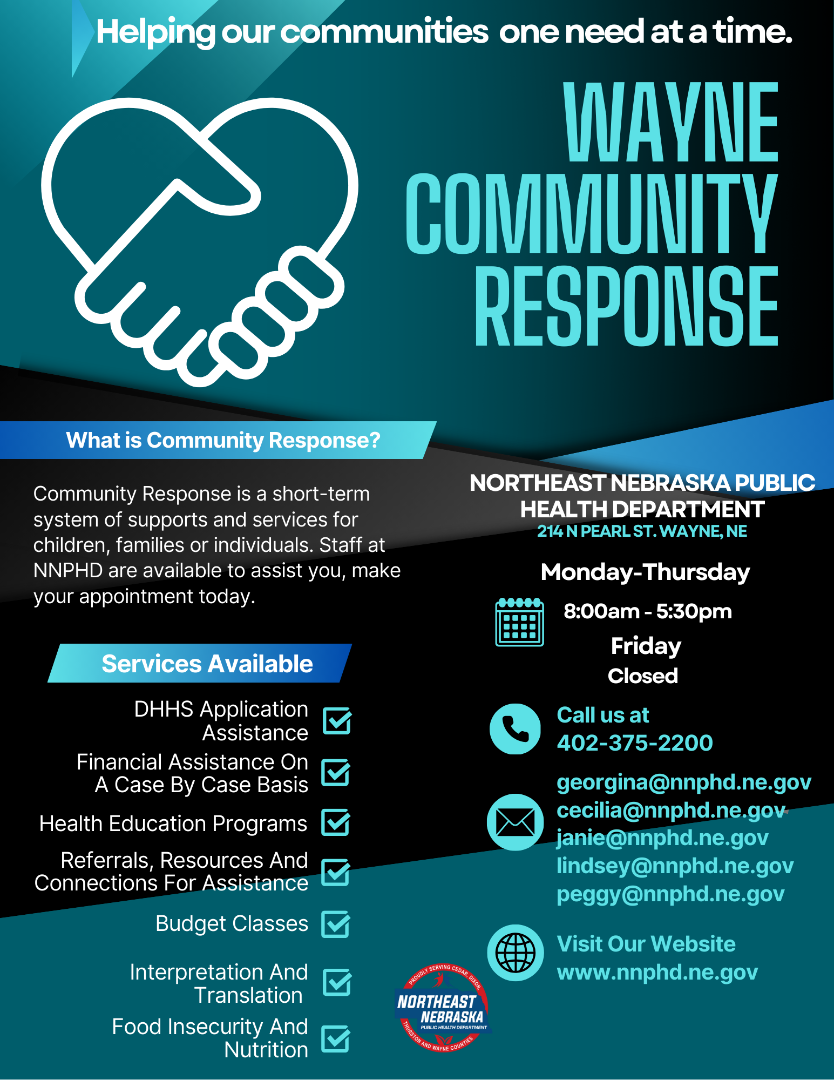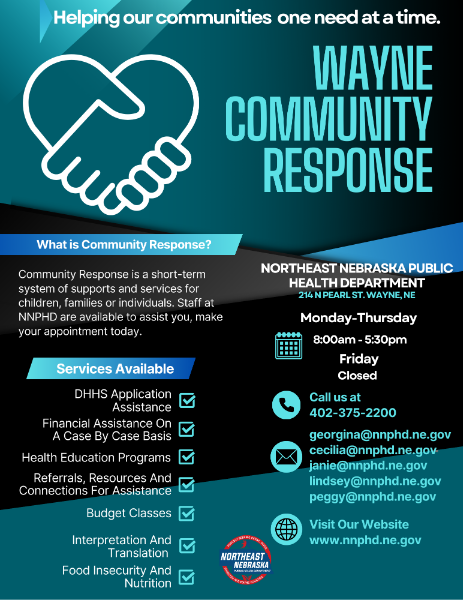Community Response
A way to find help from local and regional resources.
Community Response: A system of supports and services for children and families to prevent the unnecessary entry into the child welfare system and/or high-end systems of care. The team helps families who are willing to work to resolve crises, set goals, and access assistance to increase their safety, well-being and keep their family intact. Community response is short term, lasting from one month up to three months.
Our Services:
- DHHS Application Assistance
- Food Insecurity and Nutrition
- Health Education Programs
- Interpretation and Translation
- Referrals
- Financial Assistance on a Case By Case Basis
What Is A Community Health Worker?
Patient navigators. Outreach workers. These are a few of the roles filled by community health workers - frontline health workers who can play a critical role in improving health.
Their expertise is in the communities they serve. Most of what affects people's health happens outside the doctor's office, and community health workers are well-positioned to make sure medical care is the most effective.
What Do Community Health Workers Do?
Community health workers build relationships with patients that allow them to address their needs in a holistic way. For example:
- While a doctor might prescribe an inhaler to a patient with asthma, a community health worker could make sure the patient can afford to fill the prescription and get to the pharmacy during business hours.
- A clinician might help a patient learn to treat their diabetes, but a community health worker might be the one to learn that the patient is homeless and needs to know how to manage their diabetes without having a place to cook.
Why Do Community Health Workers Matter?
Research shows community health workers can improve health outcomes and save money for the health care system by ensuring people get the right care. They are especially effective in reaching people who are not well served by the health care system.



 Launch the media gallery 1 player - media #1
Launch the media gallery 1 player - media #1